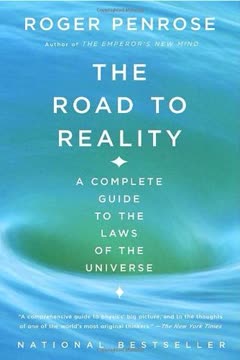Key Takeaways
1. Earth is Our Shared Spaceship: We Must Act as a Unified Crew
We live on a planet, we are all Earthlings, and the only border that matters is the thin blue line of atmosphere that protects us all from the deadly vacuum of space.
Spaceship Earth concept. Just as astronauts on the International Space Station (ISS) work together as a unified crew, we must recognize that Earth is our shared spaceship. This perspective, often called the "Overview Effect," emphasizes our interconnectedness and interdependence.
Global challenges require global solutions. Climate change, pollution, and resource depletion are issues that affect all of us, regardless of national borders. By adopting a planetary perspective, we can:
- Prioritize collective well-being over narrow self-interest
- Develop collaborative solutions to global problems
- Foster international cooperation in environmental protection and space exploration
Lessons from space. The ISS demonstrates how people from different nations can work together peacefully and productively towards a common goal. This model of cooperation can be applied to solving Earth's most pressing challenges.
2. The Thin Blue Line: Our Fragile Atmospheric Shield
Viewed from the Earth's surface, the sky seems to go on forever. Any day when you walk outside, whether the sun is shining or it's cloudy and raining, or you're out at night and all you see is darkness or the stars shining above, if you take a moment to look up and consider the sky, it can seem limitless, as if there is no end to the air that wraps around us. The truth is that our atmosphere is a mere sixty-two miles thin.
Atmospheric importance. Earth's atmosphere is a critical life-support system that:
- Protects us from harmful radiation
- Regulates temperature
- Provides the air we breathe
Threats to the atmosphere. Human activities are damaging this protective layer through:
- Greenhouse gas emissions
- Ozone depletion
- Air pollution
Taking action. Recognizing the fragility of our atmosphere can motivate us to:
- Reduce our carbon footprint
- Support clean energy initiatives
- Advocate for stronger environmental protections
3. From Passenger to Crew Member: Taking Responsibility for Earth
Live like crew, not like a passenger.
Active participation. Being a crew member means taking an active role in maintaining and improving our planetary home, rather than passively consuming resources.
Individual and collective responsibility. As crew members of Spaceship Earth, we must:
- Educate ourselves about environmental issues
- Make sustainable choices in our daily lives
- Engage in community and global initiatives for positive change
- Hold leaders and corporations accountable for their environmental impact
Empowerment through action. By shifting our mindset from passenger to crew member, we can:
- Develop a sense of purpose and agency in addressing global challenges
- Inspire others to take action through our example
- Contribute to innovative solutions for sustainable living
4. The Crucial Role of Bugs in Earth's Ecosystem
Never underestimate the importance of bugs.
Biodiversity and ecosystem health. Insects, arachnids, and other small creatures play vital roles in:
- Pollination of plants
- Decomposition of organic matter
- Food sources for other animals
- Soil aeration and nutrient cycling
Threats to bug populations. Human activities are causing alarming declines in insect populations worldwide through:
- Habitat destruction
- Pesticide use
- Climate change
Protecting the small to save the big. Recognizing the importance of bugs can lead to:
- More sustainable agricultural practices
- Habitat conservation efforts
- Reduced use of harmful chemicals
- Greater appreciation for the interconnectedness of all life on Earth
5. Balancing Urgency and Deliberation in Addressing Climate Change
Go slow to go fast.
Thoughtful action. While climate change demands urgent attention, effective solutions require careful planning and implementation.
Strategic approach. Balancing urgency and deliberation involves:
- Gathering and analyzing scientific data
- Developing comprehensive, long-term strategies
- Building consensus among diverse stakeholders
- Implementing solutions systematically and efficiently
Learning from space missions. NASA's approach to problem-solving can be applied to environmental challenges:
- Thorough preparation and training
- Clear communication and teamwork
- Adaptability in the face of unexpected challenges
- Continuous learning and improvement
6. Staying Grounded: Maintaining Perspective in Space and on Earth
Being grounded can help us solve planetary challenges.
Maintaining connection. Even in space, astronauts stay connected to Earth through:
- Regular communication with family and mission control
- Earth observation and photography
- Personal items that remind them of home
Applying space lessons to Earth. The grounded perspective gained in space can inform our approach to life on Earth by:
- Fostering appreciation for our planet's beauty and fragility
- Encouraging mindfulness and present-moment awareness
- Promoting a sense of global unity and shared purpose
Practices for staying grounded. We can cultivate a grounded perspective through:
- Meditation and mindfulness practices
- Connecting with nature
- Engaging in community service
- Seeking diverse perspectives and experiences
7. Making Life Better: Our Collective Mission as Earthlings
Whatever you do, make life better.
Shared purpose. Just as the ISS mission is to improve life on Earth through scientific research and international cooperation, we can adopt a similar mission in our daily lives.
Individual impact. Everyone can contribute to making life better by:
- Pursuing education and personal growth
- Volunteering and community engagement
- Supporting sustainable businesses and practices
- Innovating in their chosen fields
Collective action. By working together, we can address global challenges and create a better future through:
- International cooperation on environmental issues
- Sharing knowledge and resources across borders
- Supporting organizations and initiatives that promote sustainability and social justice
- Inspiring and empowering future generations to continue this mission
Last updated:
Review Summary
Back to Earth receives mixed reviews, with many praising its unique perspective on environmental issues from an astronaut's viewpoint. Readers appreciate Stott's passion, optimism, and focus on global cooperation. Some find the book inspiring and informative, particularly regarding space experiences and climate change initiatives. However, critics note a lack of cohesive structure, repetitive content, and limited personal anecdotes. The book's emphasis on individual actions for environmental change resonates with some readers but falls short for others seeking more comprehensive solutions.
Similar Books
Download PDF
Download EPUB
.epub digital book format is ideal for reading ebooks on phones, tablets, and e-readers.











